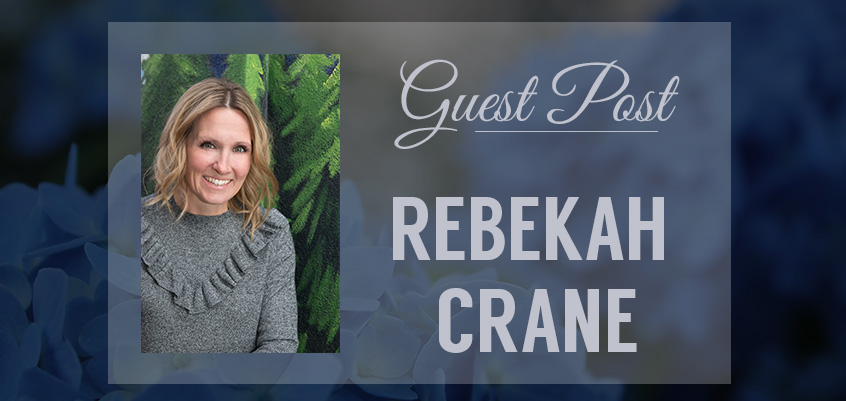Editor’s Note: The following post was written by Ausma Zehanat Khan for Fictionist Magazine. Khan is known best for her mystery books — The Unquiet Dead, Among the Ruins, The Language of Secrets, A Dangerous Crossing, and more! However, her upcoming book, The Bloodprint, will be her fantasy debut. The book is the first in a series, and will be available starting October 10, 2017. Pre-order yours on Book Depository and keep an eye out for Fictionist’s review!
I often face the problem of being desperate to write a particular story when my time and attention is committed elsewhere; so it was with The Bloodprint. It began as an idea I’d had in high school when I was introduced to a series of books that would leave a forever mark on me. You know those kinds of books; for some people it’s Harry Potter, for others it’s A Catcher in the Rye or Beloved by Toni Morrison. For me, the lightbulb went off when my father gave me The Sword of Shannara by Terry Brooks. I’d never read a book as exciting or as thoroughly enthralling. Next came The Elfstones of Shannara, a sequel with not one but two female lead characters, and I immediately began to imagine writing something like The Elfstones myself.
I was fifteen. My early drafts were horrendous. I knew nothing about the world I wanted to create except that there had to be plenty of magic in it and that the magic should be wielded by women. My story featured a Gandalf-like sorcerer named Horro, and was called The O’Nea Quest. Why I made up an Irish name, I have no idea – I just liked the sound of it. But then there was school, lots of school, and so the manuscript was stored away though I still have the notebook I wrote it in (which is now somewhat moldy at the edges).
The Bloodprint’s second iteration was as a love story. I wrote it off-and-on during a study-abroad period more than a decade later with a stronger sense of who the characters should be. This version was called Aurora Silver. Aurora and Silver would later be replaced by Arian and Daniyar of The Bloodprint, though in my head I sometimes slip up and call Daniyar “Silver”… as in the Silver Mage. In this second version, I had magic, a powerful woman, and some characters who were starting to take shape. I still had no real plot beyond the idea of a magical quest, and though I kept thinking about the book, my career in law had begun, I’d gotten married and I was juggling work, community activism, and the expectations of two large and very involved Asian families. I was still writing on the side whenever I could carve out time, but my thoughts had turned in a darker direction and I was focused on writing about the dissolution of Yugoslavia, which would eventually form the background of my first mystery novel. And then for a time I was thoroughly caught up by my mystery series, though I’d begun to branch out and diversify my reading into other areas.
I’d had a lifelong fascination with the languages, lore and history of the Islamic civilization. The Silk Road began to call to me like no other place on earth. I discovered, rather late I must add, that my husband’s family and my own, were both from places that formed branches of the Silk Road. The more of this magnificent history of South and Central Asia and the Middle East I uncovered, the more I began to envision the world of The Bloodprint. My characters now had a history and a world they sprang from. The powerful role women could play became more real to me and more necessary than ever. There was magic all around me, though my eyes had been closed to it for so long.
And then it happened. That one defining moment that gave The Bloodprint life. I was in Istanbul visiting the Topkapi Palace Museum and drifted into the chamber of Holy Relics. Whether the relics in question were authentic was of less relevance to me, at the time. Like the other patrons, I was silent in the presence of a manuscript. The air around me was filled with reverence…reverence for the written word, reverence for knowledge. And in that moment, my various interests and passions coalesced. What if I could capture that feeling of reverence in a book? What if knowledge itself was magic?
That experience set my imagination on fire, and so I dedicated all my spare time—early mornings, late evenings, a snatched weekend here and there—to putting the pieces together. I had language, history, context, characters, and I had a sacred quest. The stakes weren’t high. Just saving the world from ignorance. If reading Terry Brooks has taught me anything—and the woman today is just as thrilled by a new Shannara book as the girl of fifteen was—it’s that you have to put everything at stake, and that your characters should be prepared to sacrifice it all. To save the world from darkness. Not only does that make for an adventure you want to race through, to me it also feels real. Especially today when the world is covered in darkness.
It’s fantasy. But it’s also life.
And that makes all the difference.
— Ausma Zehanat Khan


